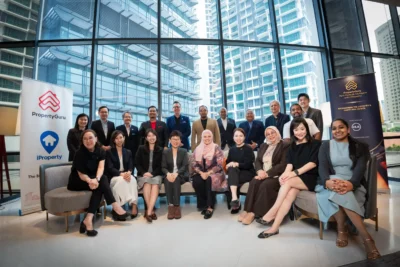From policy to property: How Cambodia’s real estate market is building back better
Developers, leaders, and homebuyers are shaping a post-pandemic market centred on quality and access

Cambodia’s property market is showing encouraging signs of recovery in 2025, driven by policy support, investor interest, and a strong push for housing accessibility. The country’s urban centres, particularly Phnom Penh and its satellite areas, are seeing renewed momentum as the government prioritises affordable housing and developers introduce more design-forward suburban projects.
Policy measures breathing life back into the market
According to The Phnom Penh Post, the Cambodian government introduced strategic measures to support the housing market’s rebound—most notably, a registration tax exemption for first-time homebuyers purchasing homes valued under USD70,000. The policy aims to stimulate demand in the lower- to mid-income segments, encouraging more Cambodians to make their first property investments.
Prime Minister Hun Manet confirmed the housing market’s positive trajectory, stating that recent growth has been fuelled by actual demand, not speculation. As reported by The Phnom Penh Post, the government is committed to transparent development, helping ensure long-term confidence in the residential sector.
This position is supported by trends in pricing and sales activity. Global Property Guide reported that property prices in Phnom Penh and major provinces have stabilised and, in some areas, begun to climb modestly after the pandemic-era downturn.
Opportunities beyond the capital
The market’s resurgence is not confined to Phnom Penh. Developers are finding opportunities in secondary cities and suburban areas. Khmer Times revealed that regions such as Siem Reap and Battambang are drawing attention for their tourism potential and growing middle-class populations. At the same time, demand for suburban living is increasing due to lifestyle changes brought about by the pandemic.
In its outlook for 2025, the Khmer Times noted that investors are still cautious, but they are showing renewed interest in mixed-use projects, satellite towns, and community-centred developments. Factors like affordability, infrastructure development, and access to green space are driving investment decisions.
While there are still macroeconomic headwinds and a backlog in unsold units from previous cycles, real estate professionals remain optimistic that ongoing reforms and renewed market discipline will attract more capital to the sector.
Honouring innovation and quality: LP Residences leads the way
At the 19th PropertyGuru Asia Property Awards Grand Final 2024, Cambodian developer LP Residences Co., Ltd. received regional recognition for its standout suburban project Palm Springs, which won Best Suburban Housing / Landed Interior Design (Asia).
The recognition highlights Cambodia’s rising profile in regional real estate. Competing with top developers from over 15 markets across Asia, Australia, and the Middle East, LP Residences’ win reflects the country’s increasing emphasis on liveability and quality—especially in a market previously dominated by inner-city condominiums.
What’s next for Cambodia’s housing sector?
With inflation under control and foreign investment flows gradually returning, developers are encouraged to align with government housing goals while also responding to changing consumer preferences.
According to The Phnom Penh Post, the Cambodian government has indicated that future policy may continue to support affordable housing, sustainable construction, and infrastructure development.
Experts cited by Khmer Times recommend that investors look toward projects that integrate long-term value propositions, such as accessibility to schools, healthcare, and public transport. Flexibility and modularity in residential design are also becoming more important as Cambodian families seek homes that adapt to hybrid working and multigenerational living.
As Cambodia’s housing market builds momentum in 2025, developers, policymakers, and investors will need to work in unison to ensure the market grows not only in size but also in sustainability and inclusivity.
Know any award-worthy residential, commercial, or industrial projects in the country? Nominate them for the 10th annual PropertyGuru Cambodia Property Awards on or before 26 Sept 2025. To know more, visit AsiaPropertyAwards.com/Award/Cambodia/.
Gynen Kyra Toriano, Digital Content Manager at PropertyGuru, wrote this article. For more information, email: [email protected].
Recommended
6 reasons Bekasi is rising as Greater Jakarta’s next hotspot
One of Greater Jakarta’s rising stars is prospering, thanks to ample recreation and a contingent of desirable housing projects
6 developments driving Asia’s green real estate shift
Developers are being incentivised to push a green agenda into daring new realms
The Philippines’ LIMA Estate drives sustainable industrial growth
LIMA Estate models a citywide vision that uplifts workers while appealing to climate-conscious employers
Malaysia property market rebounds with foreign interest and growth
The nation’s property market is stirring to life, fuelled by foreign buyers and major infrastructure drives







